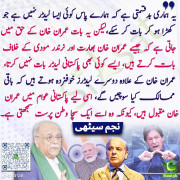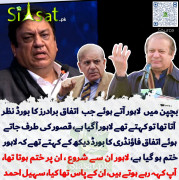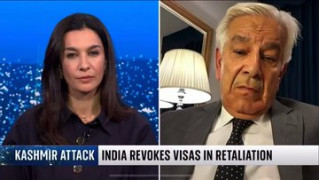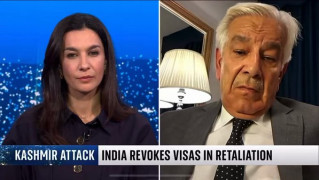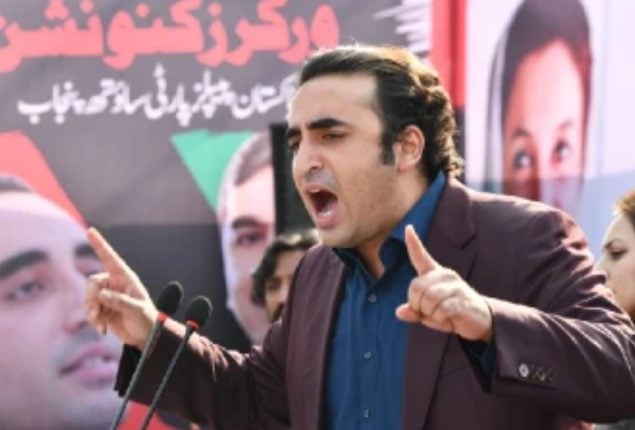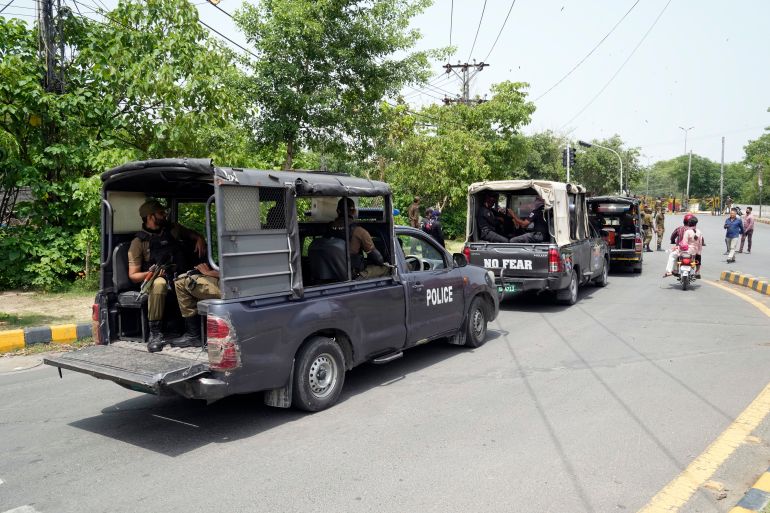Amna Rizvi
MPA (400+ posts)
A tweet from @ArifAlvi forced me to read this! Very shameful indeed
A must read in NY Times. How Raymond Davis was pardoned & released. Shameful role of General Pasha in entire episode. http://t.co/ubs4HfbMv7 via @ArifAlvi (PTI)
It's a big article, link above, I am only pasting some paragraphs. Do read and comment (only after reading, no off topic please)
..
General Pasha, the I.S.I. chief, spoke privately by phone and in person with Leon Panetta, then the director of the C.I.A., to get more information about the matter.
He suspected that Davis was a C.I.A. employee and suggested to Panetta that the two spy agencies handle the matter quietly. Meeting with Panetta, he posed a direct question.
Was Davis working for the C.I.A.? Pasha asked. No, he’s not one of ours, Panetta replied. Panetta went on to say that the matter was out of his hands, and that the issue was being handled inside State Department channels. Pasha was furious, and he decided to leave Davis’s fate in the hands of the judges in Lahore. The United States had just lost its chance, he told others, to quickly end the dispute....
....By then, though, Munter had decided that the C.I.A.’s strategy wasn’t working, and eventually even high-level officials in the agency began to realize that stonewalling the Pakistanis was only causing the I.S.I. to dig in. After discussions among White House, State Department and C.I.A. officials in Washington, Munter approached General Pasha, the I.S.I. chief, and came clean.
Davis was with the C.I.A., he said, and the United States needed to get him out of the country as quickly as possible. Pasha was fuming that Leon Panetta had lied to him, and he was going to make the Americans squirm by letting Davis sit in jail while he considered — on his own timetable — the best way to resolve the situation.
Back in Washington, Ambassador Haqqani was summoned to C.I.A. headquarters on Feb. 21 and taken into Panetta’s spacious office overlooking the agency’s campus in Langley, Va. Sitting around a large conference table, Panetta asked Haqqani for his help securing Davis’s release.
“If you’re going to send a Jason Bourne character to Pakistan, he should have the skills of a Jason Bourne to get away,” Haqqani shot back, according to one person who attended the meeting.
More than a week later, General Pasha came back to Ambassador Munter to discuss a new strategy. It was a solution based on an ancient tradition that would allow the matter to be settled outside the unpredictable court system. The issue had already been discussed among a number of Pakistani and American officials, including Ambassador Haqqani in Washington.
The reckoning for Davis’s actions would come in the form of “blood money,” or diyat, a custom under Shariah law that compensates the families of victims for their dead relatives. The matter would be handled quietly, and Davis would be released from jail.
Pasha ordered I.S.I. operatives in Lahore to meet the families of the three men killed during the January episode and negotiate a settlement. Some of the relatives initially resisted, but the I.S.I. negotiators were not about to let the talks collapse. After weeks of discussions, the parties agreed on a total of 200 million Pakistani rupees, approximately $2.34 million, to offer “forgiveness” to the jailed C.I.A. officer.
...
The C.I.A. had approval from the White House to carry out missile strikes in Pakistan even when the agency’s targeters weren’t certain about exactly whom they were killing. Under the rules of so-called “signature strikes,” decisions about whether to fire missiles from drones could be made based on patterns of activity deemed suspicious.
For instance, if a group of young “military-age males” were observed moving in and out of a suspected militant training camp and were thought to be carrying weapons, they could be considered legitimate targets. American officials admit it is nearly impossible to judge a person’s age from thousands of feet in the air, and in Pakistan’s tribal areas, adolescent boys are often among militant fighters.
Using such broad definitions to determine who was a “combatant” and therefore a legitimate target allowed Obama administration officials at one point to claim that the escalation of drone strikes in Pakistan had not killed any civilians for a year. It was something of a trick of logic: in an area of known militant activity, all military-age males could be considered enemy fighters. Therefore, anyone who was killed in a drone strike there was categorized as a combatant.
The perils of this approach were laid bare on March 17, 2011, the day after Davis was released from prison and spirited out of the country. C.I.A. drones attacked a tribal council meeting in the village of Datta Khel, in North Waziristan, killing dozens of men. Ambassador Munter and some at the Pentagon thought the timing of the strike was disastrous, and some American officials suspected that the massive strike was the C.I.A. venting its anger about the Davis episode. More important, however, many American officials believed that
the strike was botched, and that dozens of people died who shouldn’t have.
Source: http://www.nytimes.com/2013/04/14/m...interservicesintelligence&_r=0&pagewanted=all
A must read in NY Times. How Raymond Davis was pardoned & released. Shameful role of General Pasha in entire episode. http://t.co/ubs4HfbMv7 via @ArifAlvi (PTI)
It's a big article, link above, I am only pasting some paragraphs. Do read and comment (only after reading, no off topic please)
..
General Pasha, the I.S.I. chief, spoke privately by phone and in person with Leon Panetta, then the director of the C.I.A., to get more information about the matter.
He suspected that Davis was a C.I.A. employee and suggested to Panetta that the two spy agencies handle the matter quietly. Meeting with Panetta, he posed a direct question.
Was Davis working for the C.I.A.? Pasha asked. No, he’s not one of ours, Panetta replied. Panetta went on to say that the matter was out of his hands, and that the issue was being handled inside State Department channels. Pasha was furious, and he decided to leave Davis’s fate in the hands of the judges in Lahore. The United States had just lost its chance, he told others, to quickly end the dispute....
....By then, though, Munter had decided that the C.I.A.’s strategy wasn’t working, and eventually even high-level officials in the agency began to realize that stonewalling the Pakistanis was only causing the I.S.I. to dig in. After discussions among White House, State Department and C.I.A. officials in Washington, Munter approached General Pasha, the I.S.I. chief, and came clean.
Davis was with the C.I.A., he said, and the United States needed to get him out of the country as quickly as possible. Pasha was fuming that Leon Panetta had lied to him, and he was going to make the Americans squirm by letting Davis sit in jail while he considered — on his own timetable — the best way to resolve the situation.
Back in Washington, Ambassador Haqqani was summoned to C.I.A. headquarters on Feb. 21 and taken into Panetta’s spacious office overlooking the agency’s campus in Langley, Va. Sitting around a large conference table, Panetta asked Haqqani for his help securing Davis’s release.
“If you’re going to send a Jason Bourne character to Pakistan, he should have the skills of a Jason Bourne to get away,” Haqqani shot back, according to one person who attended the meeting.
More than a week later, General Pasha came back to Ambassador Munter to discuss a new strategy. It was a solution based on an ancient tradition that would allow the matter to be settled outside the unpredictable court system. The issue had already been discussed among a number of Pakistani and American officials, including Ambassador Haqqani in Washington.
The reckoning for Davis’s actions would come in the form of “blood money,” or diyat, a custom under Shariah law that compensates the families of victims for their dead relatives. The matter would be handled quietly, and Davis would be released from jail.
Pasha ordered I.S.I. operatives in Lahore to meet the families of the three men killed during the January episode and negotiate a settlement. Some of the relatives initially resisted, but the I.S.I. negotiators were not about to let the talks collapse. After weeks of discussions, the parties agreed on a total of 200 million Pakistani rupees, approximately $2.34 million, to offer “forgiveness” to the jailed C.I.A. officer.
...
The C.I.A. had approval from the White House to carry out missile strikes in Pakistan even when the agency’s targeters weren’t certain about exactly whom they were killing. Under the rules of so-called “signature strikes,” decisions about whether to fire missiles from drones could be made based on patterns of activity deemed suspicious.
For instance, if a group of young “military-age males” were observed moving in and out of a suspected militant training camp and were thought to be carrying weapons, they could be considered legitimate targets. American officials admit it is nearly impossible to judge a person’s age from thousands of feet in the air, and in Pakistan’s tribal areas, adolescent boys are often among militant fighters.
Using such broad definitions to determine who was a “combatant” and therefore a legitimate target allowed Obama administration officials at one point to claim that the escalation of drone strikes in Pakistan had not killed any civilians for a year. It was something of a trick of logic: in an area of known militant activity, all military-age males could be considered enemy fighters. Therefore, anyone who was killed in a drone strike there was categorized as a combatant.
The perils of this approach were laid bare on March 17, 2011, the day after Davis was released from prison and spirited out of the country. C.I.A. drones attacked a tribal council meeting in the village of Datta Khel, in North Waziristan, killing dozens of men. Ambassador Munter and some at the Pentagon thought the timing of the strike was disastrous, and some American officials suspected that the massive strike was the C.I.A. venting its anger about the Davis episode. More important, however, many American officials believed that
the strike was botched, and that dozens of people died who shouldn’t have.
Source: http://www.nytimes.com/2013/04/14/m...interservicesintelligence&_r=0&pagewanted=all
Last edited by a moderator:



















